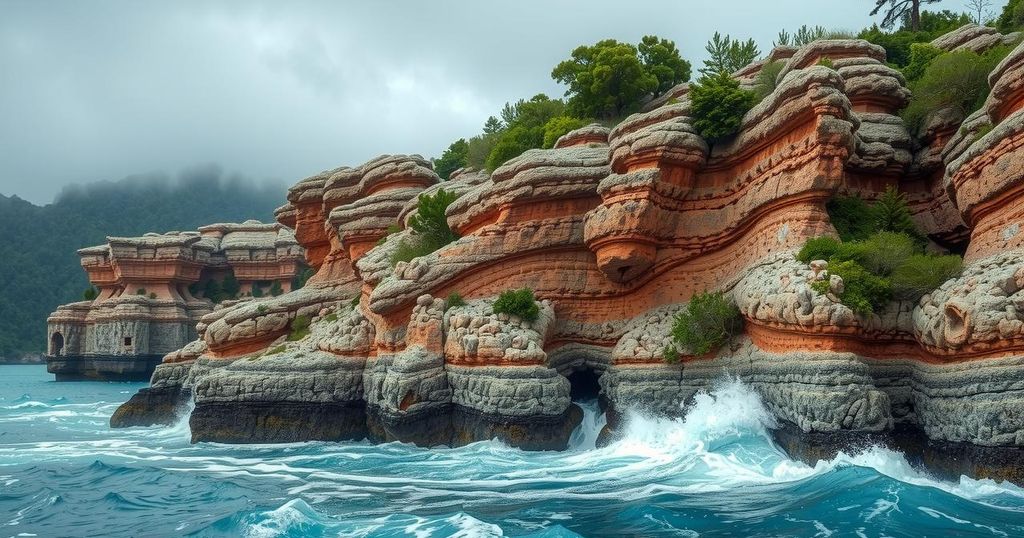A study reveals that natural world heritage sites are increasingly vulnerable to extreme climate events due to climate change. By 2100, nearly all 250 assessed NWHSs will face risks, particularly from extreme heat and compound climatic events. The researchers identified 14 highly at-risk sites, proposing urgent measures to enhance their protection amid growing climate challenges. Lake Turkana in Kenya exemplifies the dangers these sites face, having been on the endangered list since 2018.
A recent study published in the journal “Communications Earth & Environment” highlights the increasing vulnerability of natural world heritage sites (NWHS) to extreme climate events due to climate change. Researchers from Peking University and the Chinese Academy of Sciences assessed the exposure of 250 natural heritage sites under various future scenarios. Findings indicate that by the year 2100, nearly all NWHSs, particularly those in forested regions, will be threatened by extreme climatic phenomena, with tropical sites facing the greatest risk due to rising temperatures and biodiversity loss.
The study identified 14 NWHSs that require immediate attention due to their high vulnerability, located predominantly in Africa, Australia, Brazil, the United States, and Réunion Island. Many of these sites, particularly in tropical regions, are already experiencing the effects of climate change, including extreme heat and drought. This raises significant concerns for their conservation, as nearly all NWHSs are projected to experience extreme heat events by 2100, reaching levels of 98.4% under the SSP370 scenario and 99.2% under the SSP585 scenario.
The report also emphasizes the importance of adhering to the Paris Agreement’s temperature targets, which, if achieved, could mitigate the exposure of NWHSs to extreme climate conditions. Failure to curtail greenhouse gas emissions may result in 36.4% of NWHSs suffering from compound extreme climate exposure. Furthermore, these heritage sites are grappling not only with climate issues but also with human-induced pressures, such as mining, tourism, and logging, further complicating their sustainability.
Lake Turkana National Parks in Kenya serves as a notable example of a heritage site already on the World Heritage List of Danger since 2018, primarily due to climate change risks. A UNEP report indicated that over the next two decades, climate change could lead to increased rainfall and flooding in the region. The authors urge action from both the Kenyan and Ethiopian authorities to prepare for the anticipated increase in flooding events.
Natural world heritage sites are recognized for their outstanding universal value in the preservation of natural diversity and ecosystems. As climate change progresses, many of these sites face unprecedented challenges due to extreme weather events—heatwaves, flooding, and droughts—which jeopardize their ecological integrity and conservation efforts. This study is essential for understanding the specific vulnerabilities of these sites to climate change and highlights the need for proactive measures to protect them.
The study underscores a critical need for immediate action to mitigate the impacts of climate change on natural world heritage sites. With nearly all sites projected to experience extreme climatic events by the century’s end, prioritizing those at high risk is essential for their protection. Collaborative efforts adhering to international climate goals, alongside sustainable practices, are vital to safeguard these invaluable sites for future generations.
Original Source: www.downtoearth.org.in






